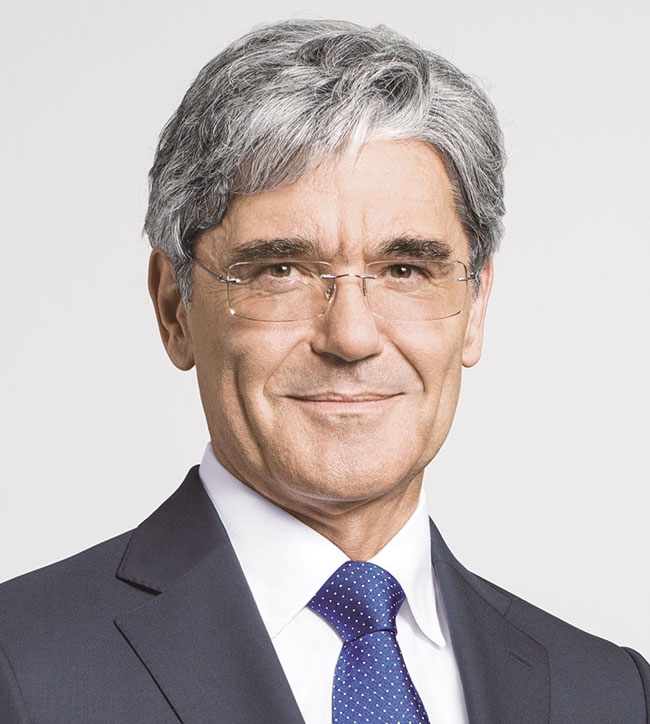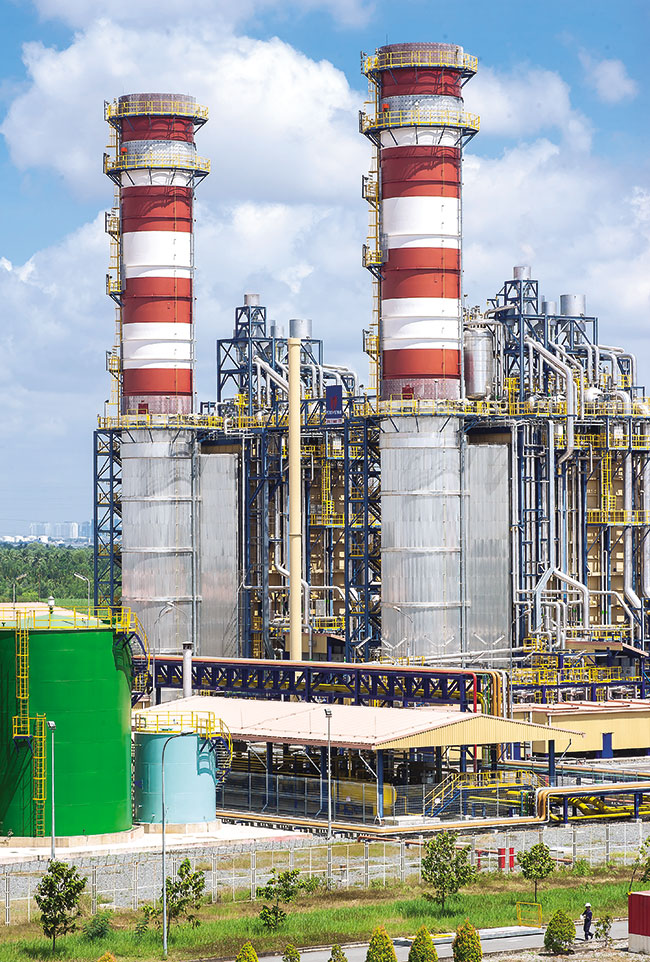Siemens fired up for future growth
 What opportunities are Siemens seeking in Vietnam?
What opportunities are Siemens seeking in Vietnam?
Siemens has been present in Vietnam since the 1990s. Over the past decades, Siemens has successfully participated in numerous infrastructure projects in Vietnam. It is now a market and innovation leader in the country’s power and gas sectors, energy management, power generation services, mobility, building technologies, digital factories, processes, drives, and healthcare.
We will expand our business in Vietnam, with a long-term commitment, by providing high technologies in these sectors.
Siemens has a very strong footprint in the energy sector in Vietnam. The total installed electricity capacity of Vietnam by the end of 2014 was about 33 gigawatts, and Siemens is contributing about 14 per cent of the total generated electricity. We supply many large gas turbines for gas-fired power plants. Combined cycle power plants, such as the 740 megawatt Phu My 3, the 1,500MW Ca Mau 1 and 2, and the 750MW Nhon Trach 2 are among the most efficient and environmentally-friendly power plants in Vietnam. We are greatly interested in the important upcoming gas-fired power projects in Vietnam, such as O Mon 3 and 4, the expansion of Nhon Trach 2, Kien Giang 1 and 2, and other gas-fired power plants in the central region.
Siemens is also one of the world’s leading companies in power transmission. We have worked with Electricity of Vietnam (EVN) and its Vietnam Electricity National Power Transmission Corporation in a number of important projects, such as the 500 kilovolt Son La, Duyen Hai, and Mong Duong 3 substations. During this visit, I met with the leaders of EVN and PetroVietnam, and we agreed that we should boost our co-operation further in future energy projects here. Siemens also plans to provide products for Vietnam in the oil and gas sectors, as well as in chemicals, fertilisers, and oil refinery.
In Hanoi and Ho Chi Minh City, I could see a high pressure on city traffic, especially at peak hours. And this is an area in which Siemens can contribute, with our integrated mobility approach. Mass transit systems like the metro will help ease traffic congestion in urban centres and enable people to move faster and easier. We are keen to provide technologies for metro lines in big cities like Hanoi and Ho Chi Minh City, and we are waiting for Ho Chi Minh City to open bidding for the metro line 2 project. We also have hybrid bus technology to help connect people from stations to their homes. With our state-of-the-art technologies in rolling stock and signalling, we also hope to be able to participate in the planning and execution of the north-south express railway project.
One notable thing is that Siemens can supply local partners with not only equipment and technology, but also financial solutions for their projects. Our close co-operation with local engineering-procurement-construction contractors will also help improve their capacity remarkably.

Siemens looks to build upon past success by expanding its business activities in Vietnam
But does Siemens have any plan to build more factories in the country?
Absolutely. Currently we have a factory in the southern province of Binh Duong. We are also studying market potential in Vietnam. If necessary, we can build another factory. As I mentioned previously, Siemens’ technologies currently contribute to the generation of 14 per cent of power in Vietnam. We expect that this rate will climb in the time to come.
Research and development (R&D) is also very important for all firms like Siemens. Do you think that Siemens will build an R&D centre in Vietnam?
Yes. We have also thought about such a plan, and we are investigating the local market for it. Vietnam has a strongly-developing information and technology sector, with many skilled engineers. Vietnam is also good at software development.
Notably, in ASEAN, Siemens Vietnam has been selected by Siemens AG to establish a hub to recruit qualified staff to work in site management, construction, erection, commissioning, environmental health and safety, and quality control for power plant projects by Siemens in Asia and the Middle East. This centre has trained 15 Vietnamese engineers. This figure will rise in the coming year.
Over the past many years, we have also been co-operating with many technical and engineering universities in Vietnam to help produce a high-quality workforce. We will continue boosting this co-operation in the time to come.
What are your recommendations for Vietnam to develop its sustainable energy?
The Vietnamese government should focus on developing gas-fired power plants rather than coal-fired power plants. Additionally, Vietnam should have incentives for
investors who develop wind-power plants, with a rise in the price of wind power. Currently, renewable prices in Vietnam remain low, making it difficult for the country to attract foreign energy investors.
What the stars mean:
★ Poor ★ ★ Promising ★★★ Good ★★★★ Very good ★★★★★ Exceptional
Latest News
More News
- State corporations poised to drive 2026 growth (February 03, 2026 | 13:58)
- Why high-tech talent will define Vietnam’s growth (February 02, 2026 | 10:47)
- FMCG resilience amid varying storms (February 02, 2026 | 10:00)
- Customs reforms strengthen business confidence, support trade growth (February 01, 2026 | 08:20)
- Vietnam and US to launch sixth trade negotiation round (January 30, 2026 | 15:19)
- Digital publishing emerges as key growth driver in Vietnam (January 30, 2026 | 10:59)
- EVN signs key contract for Tri An hydropower expansion (January 30, 2026 | 10:57)
- Vietnam to lead trade growth in ASEAN (January 29, 2026 | 15:08)
- Carlsberg Vietnam delivers Lunar New Year support in central region (January 28, 2026 | 17:19)
- TikTok penalised $35,000 in Vietnam for consumer protection violations (January 28, 2026 | 17:15)
















 Mobile Version
Mobile Version